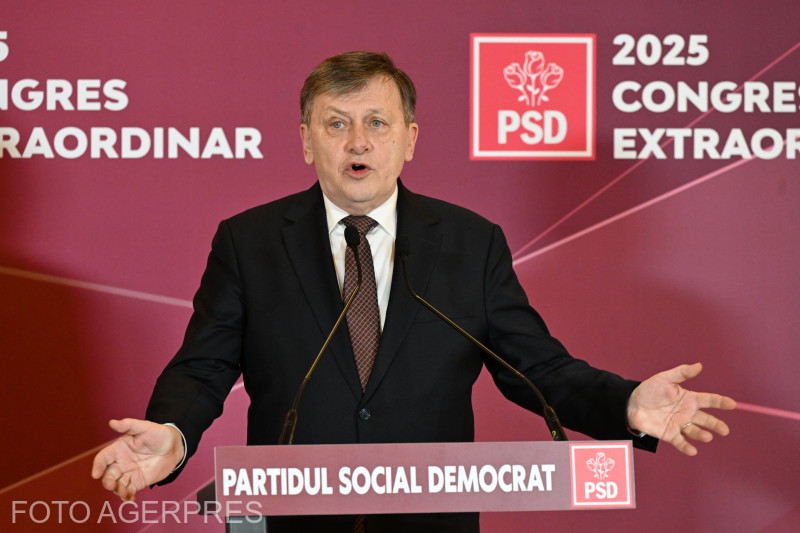Fiscal and budgertary measures at the end of the year
The fiscal and budgetary measures adopted by the Government of Romania are contested by trade unions and employers' organisations

Leyla Cheamil, 31.12.2024, 14:00
In the last meeting of this year, the Bucharest Government adopted an emergency ordinance on the basis of which the state budget for 2025 will be drawn up. Strongly contested, the document aims to stop state spending and reduce budget waste by one percent of the Gross Domestic Product, which means approximately 19 billion lei. Another goal is to increase budget revenues through the application of the structural reforms provided for in the National Recovery and Resilience Plan (PNNR). Social-democratic Prime Minister Marcel Ciolacu has stated that Romania got from the European Commission an extension of four to seven years for reducing the budget deficit, and the first step is to reduce it to 7% in 2025.
The new year is going to be difficult from an economic point of view, Ciolacu stressed, and, in this context, measures are needed to protect Romania “from potentially major financial risks”. Among the measures foreseen are the freezing of pensions and salaries in the public sector, as well as state allowances for children. The document also provides for the reduction of the subsidy allocated to political parties by 25% compared to the level granted this year. On the other hand, employment in the public sector will be frozen, and some public agencies will be closed or merged in 2025. At the same time, holiday vouchers will be granted with a co-payment from the employee of 800 lei. The Minister of Finance, Tánczos Barna, has stated that the ordinance also establishes that people working in construction, agriculture and IT must pay tax on their salary.
The document adopted by the Government increases the tax on dividends from 8 to 10 percent and introduces a new tax on special constructions. This tax will not be collected in the next 90 days, during which the application rules will be drawn up, and the Minister of Finance will have consultations with the big companies that will make investments in Romania in relation to this tax. Several union and employers’ organizations expressed their dissatisfaction with the fiscal-budgetary measures adopted by the Executive. Unions from education, public administration and social assistance, as well as the Energy Employers’ Federation criticized the lack of social dialogue and the haste with which the ordinance was promoted.
The unions in education oppose the freezing of salaries, while the employers in the food industry disapprove of the cancellation of fiscal incentives for employees in the field, and the representatives of SMEs are contesting the reduction of the taxation threshold and the increase in the tax on dividends. For their part, students are dissatisfied with the limitation of discounts on railway transport. Police officers in penitentiaries took to the streets to express their disapproval of the provisions of the ordinance. They say that, by applying the new provisions, they will lose up to 30% of their salary. (MI)






























